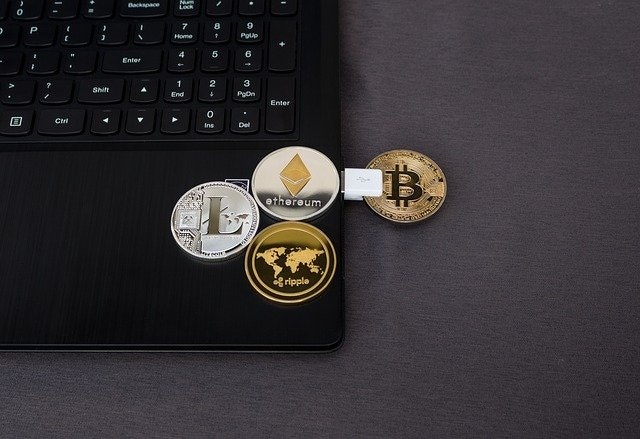4 Best Bitcoin Wallets (UK & Worldwide) of 2026 [Compared & Reviewed]
- Our Pick of Top Bitcoin Wallets for 2026
- Comparison Chart of the 4 Best Bitcoin Wallets (UK & Worldwide) of 2026
- The 7 Best Bitcoin Wallets of 2026
- What Is a Bitcoin Wallet?
- What Types of Bitcoin Wallets Are Available?
- Should You Have One or Multiple Bitcoin Wallets?
- How to Choose the Best Bitcoin Wallet for You in 2026
- Frequently Asked Questions
- Final Thoughts
If you’ve been reading any of our latest articles about the growth of cryptocurrencies, such as Bitcoin, then you’ll undoubtedly be aware of the need for a digital bitcoin wallet.
This is a secure online location where you can store your private key (the secret number for each bitcoin) in a safe space, with resilient checks to prevent cyber theft.
This article will help you understand more about the importance of bitcoin wallets and how to select the most suitable one for you.
Our Pick of Top Bitcoin Wallets for 2026
- Best Multi Cryptocurrency Wallet: Uphold
- Best Physical Crypto Wallet UK: Trezor
- Safest Bitcoin Wallet: Ledger
- Cheapest Bitcoin Wallet: Coinomi
Comparison Chart of the 4 Best Bitcoin Wallets (UK & Worldwide) of 2026
Type Online | Fiat Support Yes | Security Custodial | |||
Type Hardware | Fiat Support No | Security Non-Custodial | |||
Feature Ledger | Type Hardware | Fiat Support No | Security Non-Custodial | ||
Type Mobile/Desktop | Fiat Support Yes | Security Non-Custodial |

The 7 Best Bitcoin Wallets of 2026
Now we know more about the rationale behind bitcoin wallets, we will share the best bitcoin wallets for 2026.
This article is designed to be used as a simple guide and should be read with the caveat that the information is correct at time of going to press and has been written with desk research rather than personal experience. At WikiJob, we are not financial advisors and any information provided throughout this article is for educational purposes only.
When you are choosing a specific bitcoin wallet you should undertake your due diligence and research to ensure that you are finding the right bitcoin wallet for you.
1. Uphold – Digital Wallet
Pros
- Easy account setup, ideal for newcomers
- Intuitive user interface and app
- Abundance of advanced trading features
- Ability to trade across various asset categories (cryptocurrency, fiat currencies, metals)
- Regular addition of new, low-liquidity altcoins
- Transparent and secure reserve system
Cons
- Limited charting capabilities
Best for: Diverse asset support
Type: App & web
Uphold stands out as a top choice for purchasing Bitcoin and other cryptocurrencies in the UK.
With over 10 million users spanning 150 countries, Uphold makes buying, trading, and storing assets, including Bitcoin and 250+ other cryptocurrencies, simple and secure. Uphold prioritizes safety and transparency, operating on a 100% reserve model to hold user funds securely.
Additionally, the platform regularly updates real-time asset and liability data, accessible to the public every 30 seconds, ensuring transparency.
The Uphold Bitcoin Wallet is a versatile platform that supports a variety of digital assets, including Bitcoin (BTC), Ethereum (ETH), Dogecoin (DOGE), and many others, making it suitable for users looking to trade and store multiple cryptocurrencies.
The wallet is available on multiple devices, including iOS, Android, and web browsers, making it accessible from almost anywhere. It supports over 30 fiat and cryptocurrencies, providing a wide range of trading pairs and asset classes.
2. Trezor – Crypto Hardware Wallet
Pros
- Hardware wallet provides safe crypto storage
- Supports a wide range of cryptocurrencies
- User-friendly design
- Lightweight and compact for convenient portability
Cons
- Customer support can be hard to reach
- Advanced model is fairly expensive
Best for: Security
Type: Hardware
Hardware wallets are often seen as the best bitcoin wallet due to their security processes.
Trezor wallet is a physical device that you will need to plug into your computer giving you confidence that it cannot be attacked or stolen.
It has a strong focus on password security, having a two-factor authentication process. The sole purpose of this Trezor wallet is to ensure that your bitcoin cannot be stolen.
Visit Trezor – Crypto Hardware Wallet
3. Ledger Hardware Wallet
Pros
- Hardware wallet provides safe crypto storage
- Supports an exceptionally wide range of cryptocurrencies
- Sleek and compact for convenient portability
- Works with mobile app
- More affordable than several competitors
Cons
- Low resolution screen
Best for: Optimal security, multi-currencies, sleek design
Type: Hardware
The Ledger wallet is designed to be used with multi-currencies and can be managed easily on your desktop as well as integrating with many mobile apps.
The Ledger hardware wallet, often referred to as the Ledger crypto wallet or cold wallet Ledger, is a cutting-edge solution for securely storing and managing cryptocurrencies.
As a physical device, the Ledger hardware wallet offers enhanced security by keeping private keys offline, safeguarding them from potential online threats and hacking attempts.
This Ledger cold wallet approach ensures that sensitive information remains isolated from internet-connected devices, significantly reducing the risk of unauthorized access or theft.
With its user-friendly interface and robust encryption mechanisms, the Ledger wallet provides crypto enthusiasts with a reliable and convenient method to access, send, and receive their digital assets while maintaining the highest level of protection against cyber vulnerabilities.

4. Coinomi Wallet
Pros
- Works on mobile and desktop
- Supports a wide range of cryptocurrencies
- 24/7 live chat
- Multilingual; available in 25 languages
- No fees for receiving or sending transactions
- User-friendly interface
Cons
- Not completely open source
- No 2-Factor Authentication
Best for: Multi-chain wallets, versatile – can be used in 25 languages
Type: Mobile
The Coinomi wallet is relatively new to the market, having been developed in 2014.
It can be used on mobile and desktop and has been designed to be used with multi-chain wallets. It is multi-lingual and has superb security – its track record proudly boasts of never being hacked.
What Is a Bitcoin Wallet?
A Bitcoin wallet is a digital tool or software that allows users to securely store, send, and receive Bitcoin. It consists of a private key for accessing the funds and a public address for receiving transactions on the Bitcoin network.
Unlike traditional currencies, bitcoins do not have a physical presence therefore it can be difficult to know how to keep track of what you have purchased. When you complete a bitcoin transaction, you will have a public bitcoin address and a private key.
A private key is a secret number attributable to a specific bitcoin which is saved in the BTC wallet of the purchaser.
The private key is vital for any future transactions. Therefore, you need to feel comfortable that you are holding that information in a secure setting that can handle any potential cyber theft.
Unfortunately, if a bitcoin is stolen it is almost impossible to recover. So it is important to try and find the safest bitcoin wallet for your assets.
What Types of Bitcoin Wallets Are Available?
There are several distinct types of bitcoin wallet:
-
Paper. This is a written document which details your public bitcoin address as well as the private key which allows you to conduct transactions. Many bitcoin paper wallets use software such as QR codes to allow you to quickly scan in the information when you want to buy/sell bitcoins. The offline function of the wallet makes it extremely resilient against cybercrime, although you would need to take precautions to ensure that the document is held securely.
-
Desktop. Bitcoin desktop wallets are directly installed onto your PC. Because they don’t rely on any third parties to handle the data, they do have a strong security element. They give users complete control over their bitcoins, making them a popular option for people who only wish to invest small amounts of money. However, because they are only accessible on desktop PCs, they do limit the flexibility of bitcoin transactions.
-
Mobile. Bitcoin mobile wallets usually function in the format of dedicated apps that you can download onto your smartphone. This means that you can trade bitcoins wherever you are; however, it should be noted that some mobile wallet apps may not be transferrable between mobile or android and if a cyber hacker gains access to your phone, then your security could be at risk.
-
Web. E-wallets are managed and maintained by third-party agencies. Although they can replicate both desktop and mobile variations, you are reliant upon that third party’s security processes. If they are hacked, you would lose everything.
-
Hardware wallets. These are generally felt to be the most secure bitcoin wallet. It uses an external piece of hardware (such as a USB stick) to secure the private key of the bitcoin. This means that they are resilient against threats and can be immune to the prospect of computer viruses.
Each digital wallet has its advantages so we always recommend undertaking your own research before you decide which is the best bitcoin wallet for you.
Should You Have One or Multiple Bitcoin Wallets?
We’ve previously talked about how the term ‘bitcoin’ covers a myriad of currencies, from bitcoin itself through to Bitcoin Cash and Bitcoin Gold.
Although they may have started in the same way, they have forked off to become currencies in their own right.
Therefore, it may be advisable to choose to have more than one bitcoin wallet. Many investors choose to use individual crypto wallets for each currency to facilitate easier transactions and for added security.
Some people may choose to use multiple Bitcoin wallets to store their bitcoin private keys to have added security – for instance, they may like the flexibility of a mobile wallet but enjoy the security levels of a hardware wallet option.
Many Bitcoin wallets will integrate with others to allow this added flexibility. However, it should be noted that each crypto wallet has its own maintenance which could add to the time that you spend on your Bitcoin accounts.
How to Choose the Best Bitcoin Wallet for You in 2026
If you’re new to bitcoins then you may need something basic to help you get to grips with it, whilst experienced bitcoin users may need something a little more comprehensive to help them maximise their investments.
When you choose the best bitcoin wallet for you there are many things you may need to consider:
Step 1. Understand Wallet Types
Learn about the different types of Bitcoin wallets, including software wallets (hot wallets) and hardware wallets (cold wallets). Understand the trade-offs between convenience and security.
Step 2. Security Features
Prioritize wallets with robust security features. Look for strong encryption, two-factor authentication (2FA), and the ability to set a strong password. Hardware wallets are renowned for their enhanced security due to offline storage of private keys.
Step 3. Private Key Control
Ensure the wallet gives you full control over your private keys. This is crucial for maintaining ownership and accessing your Bitcoin. Avoid wallets that don't grant you direct control.
Step 4. Compatibility
Check if the wallet is compatible with the devices and operating systems you use, such as mobile devices, desktop computers or specific operating systems like Windows, macOS, Linux, iOS or Android.
Step 5. Cryptocurrency Support
If you plan to store more than just Bitcoin, ensure the wallet supports the cryptocurrencies you're interested in. Many wallets support a variety of altcoins in addition to Bitcoin.
Step 6. User Interface
Opt for wallets with an intuitive and user-friendly interface. A clean design and easy navigation make it simpler to manage your Bitcoin holdings.
Step 7. Reputation and Reviews
Research the wallet provider's reputation. Look for well-established wallets with positive reviews from the crypto community. Avoid wallets with a history of security breaches or controversies.
Step 8. Customer Support
Check if the wallet provider offers responsive customer support. In case you encounter issues, having accessible and helpful support can be crucial.
Step 9. Backup and Recovery
Verify the wallet's backup and recovery options. A reliable wallet should provide a secure way to back up your private keys or recovery phrases in case your device is lost or damaged.
Step 10. Fees and Customization
Compare transaction fees for sending and receiving Bitcoin. Some wallets allow you to adjust the fee according to network congestion. Additionally, assess any other associated fees.
Step 11. Development and Updates
Choose wallets that are actively maintained and regularly updated to adapt to changes in the cryptocurrency landscape, ensuring compatibility with new features and security standards.
Step 12. Community and Support
Participate in online forums, communities, and discussions to gather insights from other users. This can help you gain a better understanding of the strengths and weaknesses of different wallet options.
There are a range of different crypto wallets to choose from, including paper, desktop, mobile, web-based and hardware options.
When choosing a wallet to store your bitcoin, you should consider factors like security history, ease of use, user experience and whether it will suit your lifestyle.
Beginners may benefit from choosing a basic wallet, whereas experienced bitcoin users will probably need a wallet with additional features to maximise their investments.
It is important to choose a Bitcoin wallet that is right for your needs. Some of the top Bitcoin wallets include Uphold, Gemini and Crypto.com. You should always research several different options before choosing a Bitcoin wallet.
Cryptocurrency transactions have a reputation for high fees, so many traders in the UK choose to prioritise finding the best Bitcoin wallet that is also cheap.
If you are only storing cryptocurrency and fiat coins, there is no fee to use a bitcoin wallet. If you intend to carry out transactions, the owner of the exchange or device managing your wallet will charge various associated fees.
The Exodus wallet is a desktop wallet that offers a crypto to crypto trading platform for P2P trading. Users of this crypto wallet are entirely responsible for the safe storage of their cryptocurrency.
Unlike options such as Binance, Exodus does not hold funds or store user credentials or private keys, so it cannot access a users wallet or cryptocurrency.
If Exodus were to be attacked by hackers, the hackers would not be able to access user funds, because credentials are stored directly on the user's computer or mobile device. However, this does mean that the wallet is only as secure as the device it is installed on and the security measures put in place by the user.
You do not have to pay any fees to use a crypto wallet if you only plan to use it to store cryptocurrency and fiat coins. However, you will incur fees if you want to carry out crypto transactions.
Binance offers some of the lowest available fees. Users with a trading volume of 100 bitcoins/50 BNB or under are charged a fee of 0.10% for all transactions.
For takers, this fee reduces once you acquire 500 bitcoin or 200 BNB. With a trading volume of over 150,000 bitcoin/11, 0000 BNB, takers pay a fee of 0.04% and makers pay a fee of 0.02%.
If you have BNB tokens, you can access other discounts. Paying your fees in BNB will provide access to additional discounts.
The best Bitcoin wallet will depend on your own needs and preferences. In Australia, crypto traders can choose from a wide range of Bitcoin wallets. Some of the most popular options are Ledger and Trezor, which are both hardware wallets.
A Bitcoin wallet is a digital tool or software application that allows users to securely store, manage, and transact with their Bitcoin. It consists of two essential components: a public address for receiving Bitcoin and a private key for accessing and sending Bitcoin from the wallet.
Bitcoin wallets come in various forms, including software wallets for desktop and mobile devices, hardware wallets, and online/web wallets. They provide a convenient and secure way for users to interact with the Bitcoin network and manage their digital assets.
For beginners in the UK, consider the Exodus wallet. It's user-friendly, supports multiple cryptocurrencies, and offers good security features, making it ideal for those new to Bitcoin.
A Bitcoin (BTC) wallet address is a unique alphanumeric string that serves as the destination for sending and receiving Bitcoin transactions. It is similar to a bank account number, allowing users to identify and transfer funds.
A BTC wallet address consists of a combination of letters and numbers and is generated using cryptographic techniques. It is important to note that a Bitcoin wallet address should be kept private and not shared with others to maintain the security of your funds.
One of the highly regarded Bitcoin wallets for iPhone is Blockstream Green. It offers a user-friendly interface, advanced security features like two-factor authentication and multisignature support, and allows users to maintain full control of their private keys.
Blockstream Green also offers a seamless integration with the Blockstream Bitcoin sidechain, Liquid, enabling faster transactions. However, it's important to conduct thorough research and consider personal preferences before choosing a Bitcoin wallet.
Uphold Wallet is generally considered safe due to its robust security measures. It employs industry-standard encryption to protect user data and implements two-factor authentication for added security. Additionally, Uphold undergoes regulatory compliance and operates under financial authorities in various jurisdictions, which enhances its trustworthiness.
However, it's always important to exercise caution, follow best security practices, and keep your account information secure to mitigate any potential risks associated with using any online wallet.
Choosing between Uphold and Gemini depends on your specific needs. Uphold offers a wider range of supported cryptocurrencies, while Gemini focuses primarily on Bitcoin and a few other major cryptocurrencies.
Uphold provides more payment options, whereas Gemini offers a more robust trading platform.
Both wallets prioritize security and regulatory compliance. Consider factors like supported cryptocurrencies, trading features, user interface, and customer support to determine which wallet aligns better with your requirements.
One of the popular Bitcoin wallets in the UK with no minimum deposit requirement is CoinJar. CoinJar offers a user-friendly interface, supports multiple cryptocurrencies, and provides secure storage for digital assets. It allows users to buy, sell, and manage Bitcoin with no minimum deposit restrictions.
However, it's important to conduct thorough research and consider factors like security, fees, and user reviews before choosing a wallet that suits your specific needs.
If a Bitcoin wallet provider goes out of business, the impact can vary. If the wallet is custodial, users may lose access to their funds. With non-custodial wallets, users control their private keys and can import them into another compatible wallet to regain access to their Bitcoin. It is crucial to maintain backups of private keys or seed phrases to ensure control over funds in case a wallet provider ceases operations.
Final Thoughts
As you can see, there is much to consider when choosing the best bitcoin wallet for you. This article has given you some initial guidance into the types of crypto wallets available and who they are suited for.
As we previously mentioned, we would highly recommend that, before choosing a specific bitcoin wallet, you do as much research as possible and think about what you want to use it for and how.
WikiJob does not provide tax, investment or financial services and advice. The information is being presented without consideration of the investment objectives, risk tolerance or financial circumstances of any specific investor and might not be suitable for all investors. Past performance is not indicative of future results. Investing involves risk including the possible loss of principal.
![4 Best Bitcoin Wallets (UK & Worldwide) of 2026 [Compared & Reviewed]](https://www.datocms-assets.com/7756/1602258865-untitled-design-86.png?auto=%20compress%2C%20enhance%2Cformat&crop=focalpoint&fit=crop&fp-x=0.5&fp-y=0.5&h=400&w=1116)














